Adapting to a New Academic Culture at Queen's University Belfast
Indian PG student Rushikesh explains in detail how international students can overcome any difficulties in adapting to a new academic environment at Queen's.
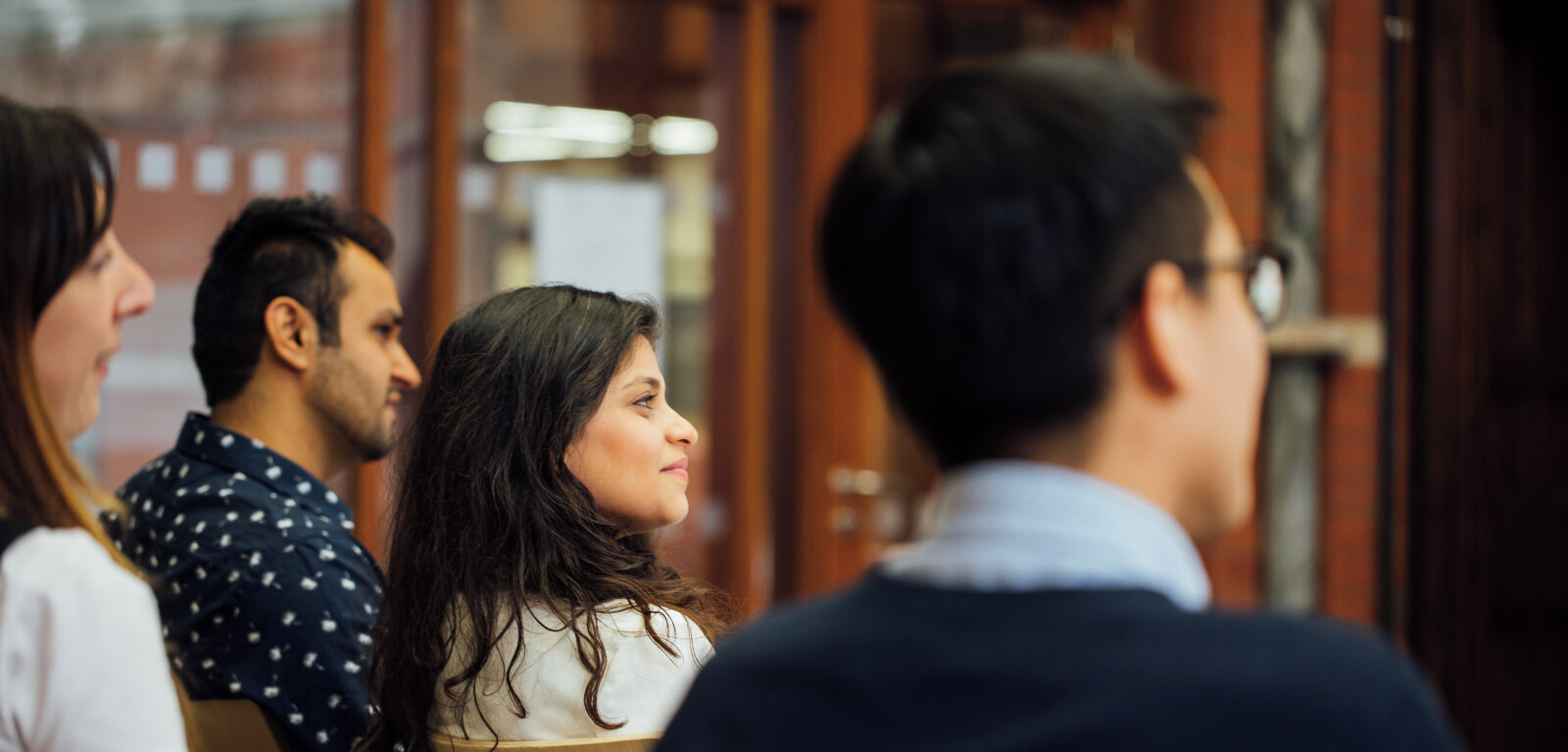
Welcome to my journey at Queen's University Belfast, a place where tradition meets modernity in the heart of one of the UK’s most vibrant and friendly capitals. As a student here, I have experienced first-hand the unique blend of world-class education and rich cultural diversity that Queen's offers.
Understanding and adapting to a new academic culture can be daunting yet exhilarating. For anyone stepping into a new university, especially one as diverse as Queen's, it's about embracing change and making the most out of every opportunity.
My experience
I remember feeling overwhelmed by the sheer pace and scale of academic life here. Initially, navigating through different teaching styles and expectations seemed like a Herculean task.
In my early days, I recall an instance when I had prepared for a seminar based on what I assumed were the professor's expectations. However, during the session, it became evident that the expectation was not just to regurgitate information but to engage critically with the material, a style quite different from what I was used to back home.
Find out more about Indian student life in Belfast and at Queen's
This moment was a turning point, highlighting the importance of flexibility and open-mindedness in my learning approach.
As I share more about adapting to life at Queen's, I hope to provide insights that can help future students transition smoothly into this vibrant academic culture, where every challenge is a stepping stone to greater achievements.
Understanding the Academic Culture at Queen's
Embracing the academic culture at Queen's University Belfast requires understanding its unique educational environment, which is characterised by a blend of traditional lecture-based teaching and innovative, research-driven learning.
Teaching Methods and Classroom Etiquette
At Queen’s, you will find that teaching methods vary significantly across different disciplines but overall they will commonly emphasise student participation, application and understanding of knowledge. Lectures, seminars, and tutorials form the core teaching framework.
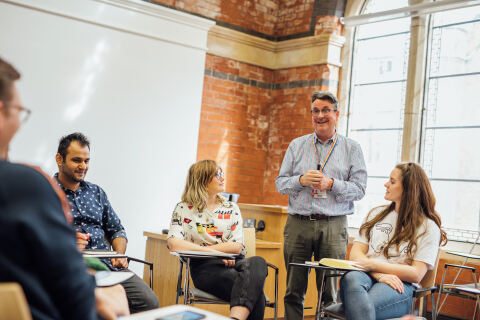
Seminars and tutorials encourage active student participation
In lectures, students are expected to listen and take notes, while mandatory seminars and tutorials are more interactive, requiring active participation, discussion, and problem-solving among peers.
Classroom etiquette at Queen’s respects formality while encouraging a dynamic exchange of ideas. Punctuality and preparedness are taken very seriously, and students are expected to contribute thoughtfully to discussions. This interactive environment is pivotal in fostering a deeper understanding and engagement with the coursework.
Note to international students- It will take first few weeks to get accustomed to lectures because of linguistic barriers and accents, and to mitigate that, students can actually send an email to professors requesting them to provide recorded lectures subject to email guidelines.
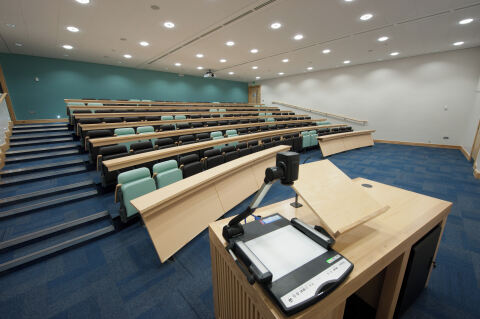
Lecture theatre at Queen's
Differences from Other International Academic Systems
For students accustomed to educational systems that focus heavily on rote learning and standardised testing, Queen’s University's approach can be quite refreshing. Here, there is a strong emphasis on independent study and critical analysis. Students are often tasked with undertaking extensive reading and research outside of class hours, preparing them to discuss and debate various viewpoints within their fields during class.
Note to Indian students- The system here is the opposite of the system we have back in India. The Indian education system is inclined more towards memorisation and retention of information encompassing 3 hour examinations. Here, on the other hand, it’s more grounded on an understanding based approach, where we have to submit research papers/course works, PowerPoint presentations online, every consecutive week to hone our research skills.

Tutorials will often involve student presentations
This system encourages a more profound academic involvement and personal responsibility for learning, contrasting with the more structured and guided learning environments found in some other international contexts.
Importance of Academic Integrity
Understanding and adhering to the principles of academic integrity is paramount at Queen’s. The university maintains strict policies on plagiarism, citations, and academic honesty. New students quickly learn that all work submitted must be their own and that proper credit must be given to the original sources of ideas, words, and data.
Note to international students- To get accustomed to new subjects and curriculum, the University actually runs independent classes on academic literacy.
For Example- As I am a postgraduate law student, I was given the opportunity to study Academic Literacy for Law.
The Academic Literacy course aims to give an overview of ways to improve English and Academic Skills. There are sessions that have been designed to support all the international students with the academic, writing and research skills needed to complete majority of the key assignments in their respective programmes.
Find out more about INTO Queen's and Academic English classes
Note to international students- This programme is optional, however, I can’t stress enough how important and useful this course has been to me and hundreds of international students from around the globe. The University even provides 1:1 consultation with teachers in helping them understanding the subject.
Kudos to University Staff!
The commitment to academic integrity is not just about following rules but is seen as essential to the development of personal integrity and ethics in professional and personal life. Workshops, resources, and guidance are readily available to all students to ensure they understand how to incorporate these standards into their academic work.
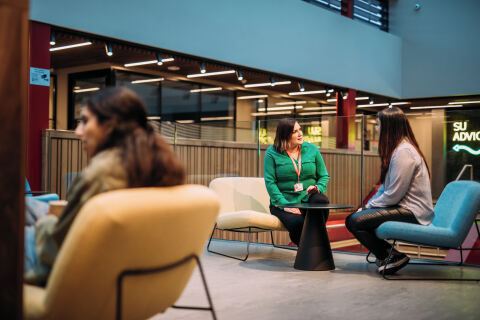
Support services are readily available
Strategies for Successful Adaptation
Effective Communication Strategies:
- Seek Language Support Resources: Actively search for language learning facilities and tools available on campus to aid in improving language skills.
- Engage in Discussions: Participate in class and group discussions to enhance language proficiency and understanding of the subject matter.
- Ask for Clarification: Do not hesitate to request further explanations when academic materials, tasks, or instructions are unclear.
How to Seek Help:
- Utilise Office Hours: Take advantage of the opportunity to discuss academic challenges and seek guidance during professors' office hours.
- Join Study Groups: Collaborate with peers in study groups to better understand course material and build a support network.
- Leverage Academic Support Services: Make use of tutoring centres, writing help desks, and other academic support services offered by the institution.
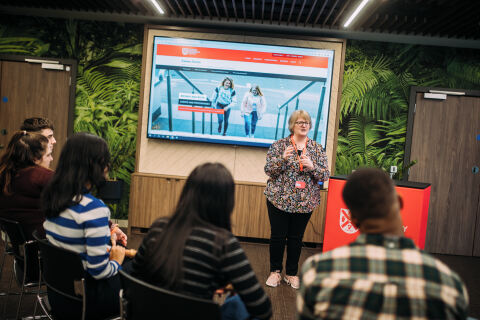
Make use of resources and services offered by Queen's
Embracing the Learning Curve:
- Be Open to Making Mistakes: Accept that making mistakes is a part of the learning process, especially when adapting to new academic standards.
- Learn from Feedback: Pay close attention to feedback from instructors and peers, as it is crucial for academic improvement and adaptation.
Balancing Social and Academic Life:
- Join Clubs and Societies: Engage in extracurricular activities to meet new people, relieve academic stress, and develop a well-rounded university experience.
- Participate in Networking Events: Attend campus events and professional gatherings to expand your network, which can be beneficial for academic collaboration and career opportunities.
These strategies can help international students navigate the challenges of adapting to a new academic environment and enhance their overall educational experience.
Hear more about Clubs and Societies at Queen's
Resources Available at Queen’s University
Queen’s offers a wide range of support services including access to a database designed to help students navigate academic life and enhance their personal and professional development. The following workshops, led by experienced consultants, are tailored specifically for graduate students to improve their writing, research, and communication skills.
- Wake Up & Write: Setting an Attainable Writing Goal.
Consultant: Dr. Fabiana Fausto McCracken.
This morning workshop encourages participants to develop new writing habits to boost productivity. It involves setting achievable writing goals, applying time management techniques, and tracking progress.
- Writing a Successful Competency-based Application Form.
Consultant: Joan Connolly.
This session focuses on effectively showcasing experience and answering competency-based questions in job applications. It includes practical exercises with a focus on demonstrating teamwork and communication skills.
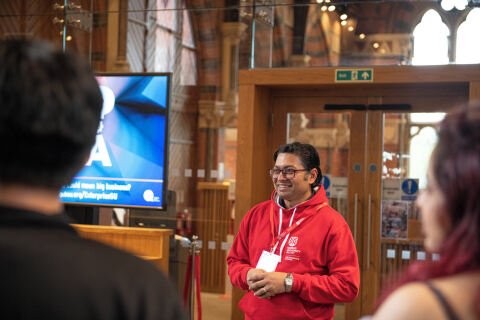
Find out more about Postgraduate development opportunities
- Communicating with Impact: How to Plan and Present your Work at Conferences.
Consultant: Dr. Fabiana Fausto McCracken.
Participants learn to engage audiences and highlight the relevance of their work at academic conferences, using an effective communication toolkit.
- Building Blocks Series: Writing Scientific and Business Reports.
Consultant: Dr. Fabiana Fausto McCracken.
This workshop teaches techniques to enhance report writing skills, focusing on structuring reports and highlighting key research findings.
- Postgraduate Productivity: Optimize Your Writing.
Consultant: Dr. Abbie Edgar
Inspired by ‘Turbocharge Your Writing,’ this workshop explores writing productivity, helping participants create effective writing plans.
These workshops are structured to not only develop essential academic skills but also to foster a community among students, enhancing their growth both academically and professionally.
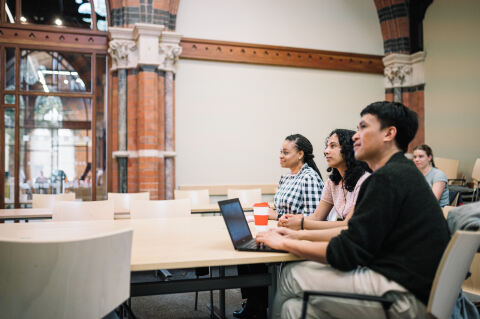
View upcoming training and events at the Graduate School
Conclusion
Adapting to the academic culture at Queen's offers a unique blend of traditional and modern teaching methods, supporting students in a vibrant educational environment. By engaging with workshops, embracing rigorous academic standards, and utilising available resources, international students can effectively transition and enhance their educational experience.
I encourage my fellow students to proactively embrace these opportunities for growth and participate actively in both academic and social activities. Together, we can turn these challenges into rewarding opportunities for personal and academic success.
Find out more
More blogs about Studying and Courses
Rushikesh MahajanLLM Law and Technology | Postgraduate Student | IndiaI am a Postgraduate student specialising in LLM Law and Technology at Queen’s University Belfast. I have a strong interest in digital services and technology. I come from a legal background where majority of emphasis was given on reading. I like to cook, play video games and talk to people. As a solicitor I like to learn about people and provide them solution. |
 |